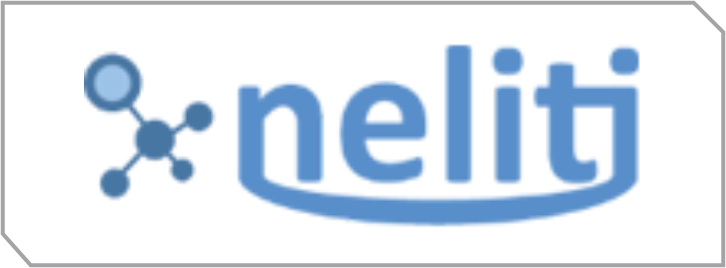The Urgency of the Legal Regulation of the Digitalization Era
DOI:
https://doi.org/10.53748/jbms.v5i2.120Keywords:
authentic deeds, authentication, cyber notary, digitalization era, notary lawAbstract
The primary purpose of this research is to examine the integration of digital technology, specifically digital certification and signatures, into the notarial process in the current legal framework. The research employs a juridical-normative legal research methodology. This approach involves analyzing existing laws, regulations, and legal principles (the “normative” aspect) to address the legal problem at hand. The findings suggest that when consumers are faced with limited choices, such as accepting unfavorable terms or discontinuing service, informational and normative conformity significantly influence continuance intention. Factors such as perceived security, service quality, satisfaction, and perceived usefulness are found to moderate the relationship between conformity and continuance intention. Additionally, previous experience, trust, and self-efficacy emerge as strong determinants of users’ willingness to reuse or abandon the service after policy disruptions. The study found that while it is technologically possible to create and sign notarial deeds digitally, there are explicitly no laws or regulations that govern this process.
Downloads
References
Anshori, A. G. (2009). Lembaga Kenotariatan Indonesia. Yogyakarta: UII Press.
Barkatullah, A. H. (2017). Hukum Transaksi Elektronik (I. M. Zulaeha, Ed.). Bandung: Nusa Media.
Dindianingrat, N. Y., Yogantara, P., & Sumardika, I. N. (2024). Kewenangan notaris dalam memberikan penyuluhan hukum terkait dengan pembuatan akta. Acta Comitas: Jurnal Hukum Kenotariatan, 9(3), 615–628.
Handoko, W. (2019). Dominasi Negara terhadap Profesi Notaris antara Ide dan Realitas (A. Y. E. Nasrul & A. Wibowo, Eds.). Bogor: PT Roda Publika Kreasi.
Hidayah, S. A., & Huda, M. (2024). Urgensi pengaturan cyber notary dalam layanan jasa perbankan digital. Dinasti Review: Jurnal Ilmu Hukum, Humaniora dan Politik, 4(6), 2746–2754.
Irawan, A., Bakry, M. R., & Hardian, F. (2024). Eksistensi aspek teknologi dalam pembuatan akta autentik secara elektronik pada pengaturan jabatan notaris di era industri 5.0. Comserva: Jurnal Penelitian dan Pengabdian Masyarakat, 2(8), 1501–1521.
Makarim, E. (2003). Kompilasi Hukum Telematika. Jakarta: Raja Grafindo Persada.
Nainggolan, D. A., Simanjuntak, C. G., Nainggolan, Y. K., Silalahi, I. V., Hutasoit, N. S., Hasugian, C., & Siallagan, H. (2025). Penerapan m-banking dalam meningkatkan jasa, layanan perbankan di Bank Rakyat Indonesia. Jurnal Daya Saing, 11(1), 33–42.
Nurhidayati, E., & Sukarno, G. (2023). Strategi meningkatkan kualitas layanan melalui digitalisasi jasa perbankan “Digi by Bank BJB” guna meningkatkan loyalitas dan target nasabah. KARYA: Jurnal Pengabdian Kepada Masyarakat, 3(3), 309–315.
Nurita, E. (2012). Cyber Notary (M. H. H. Ajie, Ed.). Palembang: PT Refika Aditama.
Nurita, R. A. E., Rahmi, E., & Yetniwati. (2019). Prospek cyber notary sebagai media penyimpanan pendukung menuju profesionalisme notaris. Recital Review, 1(2), 132–147.
Prasetiyo, S. M., Gustiawan, R., Farhat, & Albani, F. R. (2024). Analisis pertumbuhan pengguna internet di Indonesia. Buletin Ilmiah Ilmu Komputer dan Multimedia, 2(1), 67–71.
Ramli, A. M. (2004). Cyber Law dan HAKI dalam Sistem Hukum Indonesia. Bandung: PT Refika Aditama.
Soekanto, S., & Mamudji, S. (1985). Penelitian Hukum Normatif. Jakarta: Raja Grafindo Persada.
Sunggono, B. (1997). Metodologi Penelitian Hukum. Jakarta: Raja Grafindo Persada.
Trianto, S. A., & Priatmojo, D. (2025). Relasi manusia dan teknologi digital dalam perspektif filsafat Yin dan Yang. Jurnal Filsafat Indonesia, 8(1), 75–80.
Yetniwati, Rahmi, E., & Hartati. (2019). Peran notaris dalam pembuatan kontrak bisnis. Jurnal Karya Abdi Masyarakat, 3(2), 176–181.
Government Regulation of the Republic of Indonesia No. 82 of 2012 concerning the Implementation of Digital Systems and Transactions. (2012). State Gazette of the Republic of Indonesia No. 189, Supplement No. 5348.
The 1945 Constitution of the Republic of Indonesia.
Civil Code (Burgerlijk Wetboek).
Law No. 8 of 1997 concerning Company Documents. (1997). State Gazette of the Republic of Indonesia No. 18, Supplement No. 3674.
Law No. 40 of 2007 concerning Limited Liability Companies. (2007). State Gazette of the Republic of Indonesia No. 106, Supplement No. 4756.
Law No. 11 of 2008 concerning Electronic Information and Transactions. (2008). State Gazette of the Republic of Indonesia No. 58, Supplement No. 4843.
Law No. 14 of 2008 concerning Public Information Disclosure. (2008). State Gazette of the Republic of Indonesia No. 61, Supplement No. 4846.
Law No. 25 of 2009 concerning Public Services. (2009). State Gazette of the Republic of Indonesia No. 112, Supplement No. 5038.
Law No. 2 of 2014 concerning Amendments to Law No. 30 of 2004 concerning the Position of Notary. (2014). State Gazette of the Republic of Indonesia No. 3, Supplement No. 5491.
Law No. 30 of 2014 concerning Government Administration. (2014). State Gazette of the Republic of Indonesia No. 292, Supplement No. 5601.
Regulation of the Minister of Law and Human Rights No. 5 of 2014 concerning the Ratification of Legal Entity of Foundations. (2014). State Gazette of the Republic of Indonesia No. 393.
Regulation of the Minister of Law and Human Rights No. 6 of 2014 concerning the Ratification of Legal Entities of Associations. (2014). State Gazette of the Republic of Indonesia No. 394.
Regulation of the Minister of Law and Human Rights No. 14 of 2020 concerning the Second Amendment to Regulation No. 4 of 2014 on Procedures for Submitting Applications for Legal Entity Approval and Amendments. (2020). State Gazette of the Republic of Indonesia No. 489.
Downloads
Published
How to Cite
Issue
Section
License
Copyright (c) 2025 Journal of Business, Management, and Social Studies

This work is licensed under a Creative Commons Attribution 4.0 International License.
Authors retain copyright and grant the journal right of first publication with the work simultaneously licensed under a Creative Commons Attribution 4.0 (CC 4.0) that allows others to share the work with an acknowledgment of the work's authorship and initial publication in this journal.


















